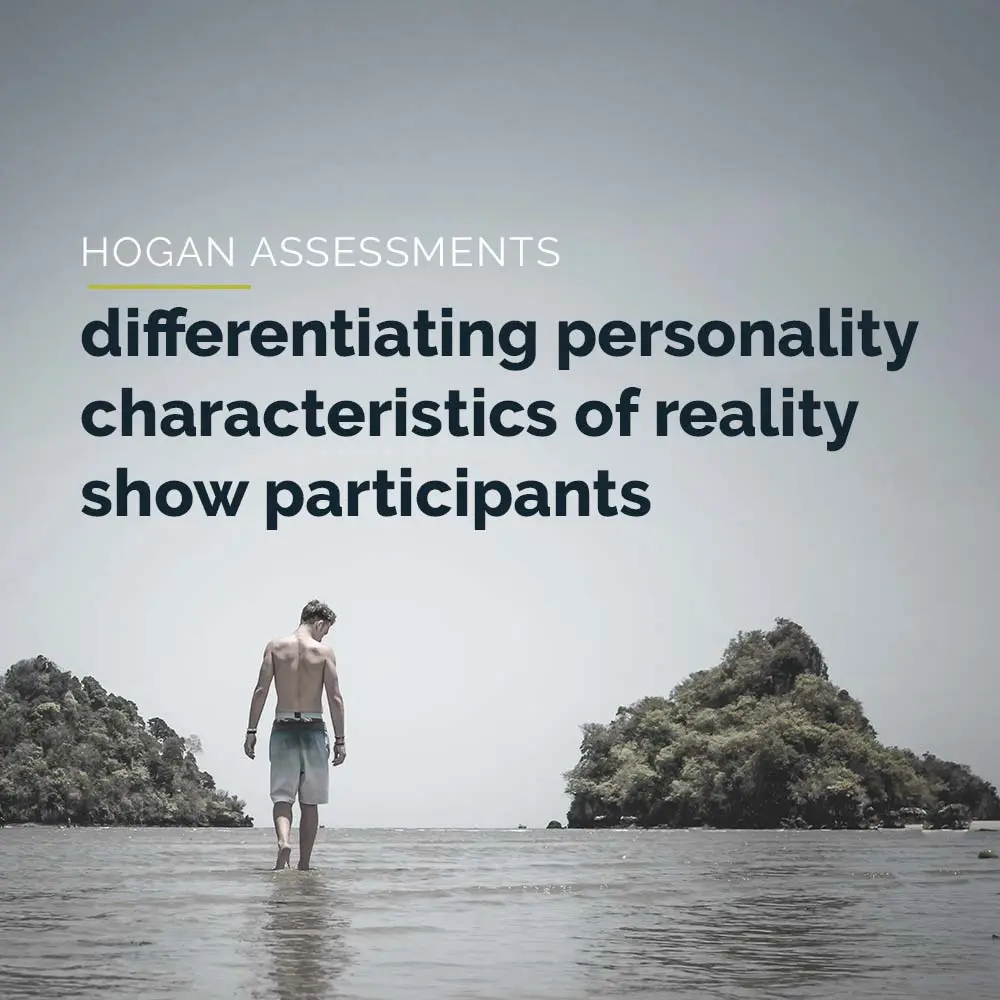Challenge
Given that research on reality show participants in South Africa is limited, it was pertinent to assess the personality characteristics and motives of applicants for Survivor SA (season 2) and Big Brother Africa (season 3) before theyentered the selection process. The aim was to determine whether reality show applicants display any distinguishable patterns of personality, as compared to the general South African working population and to compare the profiles of Survivor applicants to Big Brother applicants.
The usual application and selection processes for these two reality shows are fairly similar. The general public is invited to apply through various avenues, and the applicants are placed on a shortlist of between 600 and 1000 entrants based on their fulfilment of certain exclusion criteria. In some cases, this applicant pool can be further reduced through CV screening before the next step. The remaining applicants are invited to participate in video interviews, from which a group of finalists is chosen (usually double the number of contestants required to appear on the show). A clinical interview and assessment are then conducted in order to screen for possible risk, and the final contestants selected.
Solution/Study
Applicants who were shortlisted from the two reality shows completed the Hogan Personality Inventory (HPI), the Hogan Development Survey (HDS) and the Motives, Values, Preferences Inventory (MVPI). Approximately 600 Survivor and Big Brother Africa applicants completed the three assessments.
Results
The results indicated that there were noticeable differences on all three Hogan assessments between reality show applicants and the general South African working population, and between Survivor and Big Brother Africa applicants. This is a good indication that reality show applicants do exhibit a consistent profile that differs from what is seen in the general population and suggests that not everyone is predisposed to a life in the spotlight. The graphs below illustrate the differences between the mean scores of reality participants and the general population.
In terms of personality, the results indicated that reality show applicants:
tend to be very extraverted, flexible,and thrive on social interaction;
appear likely to be impulsive and fail to think through theconsequences of their actions;
react to stress and pressure by dominating and intimidating others, pushing the limits, and ignoring commitments and advice from others;
have a tendency to be dramatic, self-promoting, and attention-seeking;
tend to be eccentric, creative, and unconventional, while unaware of how their actions affect others.
From a motivation perspective, the results indicated that reality show applicants:
tend to strongly value public acknowledgement oftheir actions and achievements;
are driven by being the centre of attention;
come across as exceptionally lively, flirtatious, and pleasure seeking;
have a strong need for fun and excitement;
seek a lifestyle organised around good food, good drinks, and entertainment
Share this post
Newsletter
Get up-to-date industry news right in your inbox



